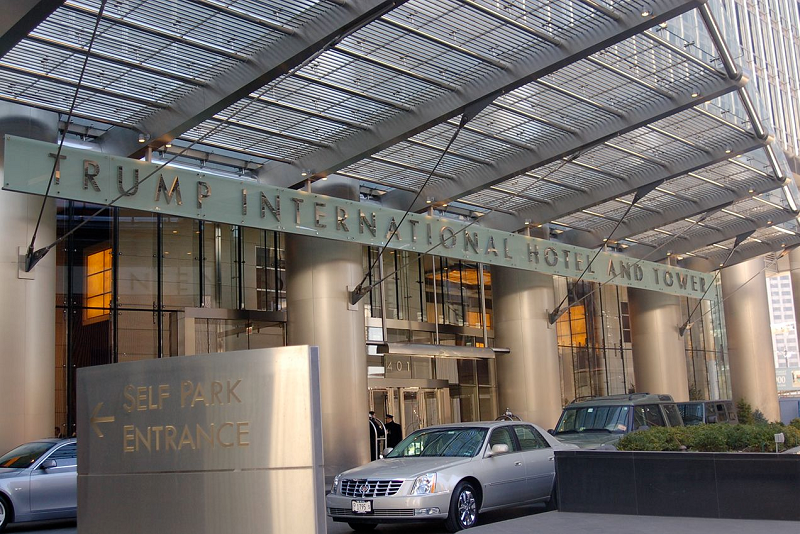BROWSE BY TOPIC
- Bad Brokers
- Compliance Concepts
- Investor Protection
- Investments - Unsuitable
- Investments - Strategies
- Investments - Private
- Features/Scandals
- Companies
- Technology/Internet
- Rules & Regulations
- Crimes
- Investments
- Bad Advisors
- Boiler Rooms
- Hirings/Transitions
- Terminations/Cost Cutting
- Regulators
- Wall Street News
- General News
- Donald Trump & Co.
- Lawsuits/Arbitrations
- Regulatory Sanctions
- Big Banks
- People
TRENDING TAGS
Stories of Interest
- Sarah ten Siethoff is New Associate Director of SEC Investment Management Rulemaking Office
- Catherine Keating Appointed CEO of BNY Mellon Wealth Management
- Credit Suisse to Pay $47Mn to Resolve DOJ Asia Probe
- SEC Chair Clayton Goes 'Hat in Hand' Before Congress on 2019 Budget Request
- SEC's Opening Remarks to the Elder Justice Coordinating Council
- Massachusetts Jury Convicts CA Attorney of Securities Fraud
- Deutsche Bank Says 3 Senior Investment Bankers to Leave Firm
- World’s Biggest Hedge Fund Reportedly ‘Bearish On Financial Assets’
- SEC Fines Constant Contact, Popular Email Marketer, for Overstating Subscriber Numbers
- SocGen Agrees to Pay $1.3 Billion to End Libya, Libor Probes
- Cryptocurrency Exchange Bitfinex Briefly Halts Trading After Cyber Attack
- SEC Names Valerie Szczepanik Senior Advisor for Digital Assets and Innovation
- SEC Modernizes Delivery of Fund Reports, Seeks Public Feedback on Improving Fund Disclosure
- NYSE Says SEC Plan to Limit Exchange Rebates Would Hurt Investors
- Deutsche Bank faces another challenge with Fed stress test
- Former JPMorgan Broker Files racial discrimination suit against company
- $3.3Mn Winning Bid for Lunch with Warren Buffett
- Julie Erhardt is SEC's New Acting Chief Risk Officer
- Chyhe Becker is SEC's New Acting Chief Economist, Acting Director of Economic and Risk Analysis Division
- Getting a Handle on Virtual Currencies - FINRA
ABOUT FINANCIALISH
We seek to provide information, insights and direction that may enable the Financial Community to effectively and efficiently operate in a regulatory risk-free environment by curating content from all over the web.
Stay Informed with the latest fanancialish news.
SUBSCRIBE FOR
NEWSLETTERS & ALERTS
How Donald Trump Learned First Hand About Hacking
[Photo: Trump Int'l Hotel in Chicago - by Ashleigh Nushawg / Wikimedia Commons]
Donald Trump's boast last weekend that "I know a lot about hacking" prompted a wave of mockery of a President-elect who seems to have skipped the computer age. But Trump does have direct experience on hacking - his hotel chain suffered a series of recent data breaches, exposing 70,000 credit card numbers and personal information of its customers. And, it paid a fine to settle with the NY AG for failing to properly notify its guests of the hacks.
What led to the settlement with New York began in May 2015, when several banks spotted hundreds of fraudulent credit card transactions. The stolen card numbers had a common thread: In each case, the last merchant where a legitimate purchase took place was the Trump Hotel Collection, a set of gilded properties that Trump's company manages from New York to Waikiki to Panama.
According to the attorney general, forensic investigators determined in June 2015 that an attacker, posing as an administrator, activated malware to capture credit card numbers in the Trump hotel payment system. Hackers stole guests' cards at hotels, including properties in New York, Miami, and Las Vegas. But even after Trump Hotel Collection knew that their systems had been compromised as early as June, the company failed to notify its customers until nearly four months later in September, a delay that violated New York law, the attorney general said.
A second hack - which Schniederman said could have been prevented if Trump hotels had implemented better security after the first cyberattack - was discovered by forensic investigators earlier this year, and targeted credit card numbers linked to 5 hotel properties. Trump Hotel Collection settled with Schniederman in September, paying $50,000 in penalties and agreeing to a host of data security improvements, including two-factor authentication for remote access to its computer systems, and employee training.





